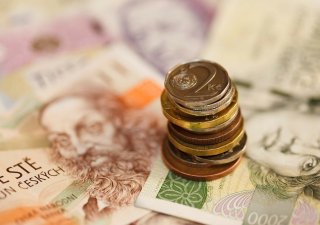Energy prices fell significantly on world stock exchanges in January. On the contrary, gold, copper and aluminum became more expensive. In general, commodities stagnated, with the Bloomberg commodity index down 0.5 percent to near the lowest levels since the start of the war in Ukraine, said Jiří Tyleček, an analyst at the XTB investment company.
Commodities stagnated
Energy prices fell significantly on world stock exchanges in January. On the contrary, gold, copper and aluminum became more expensive. In general, commodities stagnated, with the Bloomberg commodity index down 0.5 percent to near the lowest levels since the start of the war in Ukraine, said Jiří Tyleček, an analyst at the XTB investment company.
“The markets are afraid of the coming recession in major economies, including the US and Europe. On the other hand, however, traders are hoping for growth in demand associated with the end of the zero-covid policy in China, which is their largest global consumer,” said Tyleček.
The US dollar, in which most traded commodities are denominated, weakened in January and, according to the analyst, should theoretically support dollar price growth. “But that didn’t happen. When converted to other currencies, including the Czech crown, commodities had an even more pronounced tendency to become cheaper,” Tyleček commented on the figures.
The sugar war. Nekula asks for an explanation of the high price, the union considers it a scandal
Money
In a letter, Minister of Agriculture Zdeněk Nekula (KDU-ČSL) called on retail chains to explain the high prices of sugar. He drew attention to the fact that prices rose sharply last fall and, according to him, stores should not abuse the current economic situation to disproportionately increase profits. The Trade and Tourism Association of the Czech Republic (SOCR ČR) considers the minister’s statement a scandal.
Read the article
Brent fell to $84.50
Energy recorded the highest losses in January. The price of Brent North Sea oil fell by 1.7 percent to 84.50 dollars (1860 crowns) per barrel. Texas benchmark WTI crude lost 1.5 percent to $79 a barrel. Gas prices also fell. At the end of the month, the monthly contract on the exchange in the Netherlands lost 27.5 percent to 57 euros/MWh. It was the lowest price since September 2021.
Electricity prices followed the development of gas. The monthly electricity contract on the Leipzig exchange lost 28 percent to a price of 176 euros per megawatt hour. It was one of the lowest levels since March 2022. The price of coal was also falling. In Rotterdam, there was a drop of 36 percent to $140 per ton. Tyleček pointed out that the drop in energy prices was related to the warmer course of the winter so far.
The prices of industrial metals rose in January
On the contrary, according to him, the prices of industrial metals rose significantly in January. Copper added 10.1 percent to $9,220 a tonne. Aluminum added 11.2 percent to $2,650 per ton. Optimism around China was behind the rise in the prices of industrial metals, Tyleček said. Wood and insulation prices remained at December levels. However, a slight increase in prices was recorded for bricks and concrete elements.

Lukáš Kovanda: The misstep of the head of the Fed attracted investors to bitcoin and the crown
Opinions
Both the Czech koruna and bitcoin are rising to highs against the dollar. Because of yesterday’s cardinal mistake of the head of the American central bank.
Read the article
The price of gold in January rose by 5.7 percent to $1,928 per troy ounce. “High demand stimulated the growth of the gold price, which continued in January. Part of the demand is due to the persistent interest of central banks in purchases, but also the interest of investors, who once again choose gold as a safe haven against inflation,” said Martin Stránský, director of Gold.plus trader.
Gold’s success was not followed by palladium
According to him, the success of gold in January was not followed by palladium, whose price fell by 8.6 percent to $1,639. The price of platinum, which is still widely used by automakers, fell 6.1 percent to $1,019 in January. Copper rose by 10.5 percent in January.
Conversely, silver fell by 0.9 percent to $23.70 per ounce. According to Tyleček, precious metals were helped by the drop in the dollar and traders began to perceive the limits of the growth of central banks’ interest rates. Of the agricultural commodities, sugar and coffee achieved the highest rise. The price of sugar rose eight percent to $0.215 a pound. The price of coffee added seven percent to $1.79 a pound. Wheat showed the most significant losses. A drop of 4.5 percent brought it to $7.5 per bushel, added Tyleček.

Grain exports from Ukraine have fallen by almost 30 percent so far
Money
Ukraine has so far exported almost 18.1 million tons of grain in this growing season. This is 29.6 percent less than in the same period of the previous season. This was reported by the Reuters agency, citing data from the Ukrainian Ministry of Agriculture. Ukraine has been facing Russian military aggression since February.
Read the article


